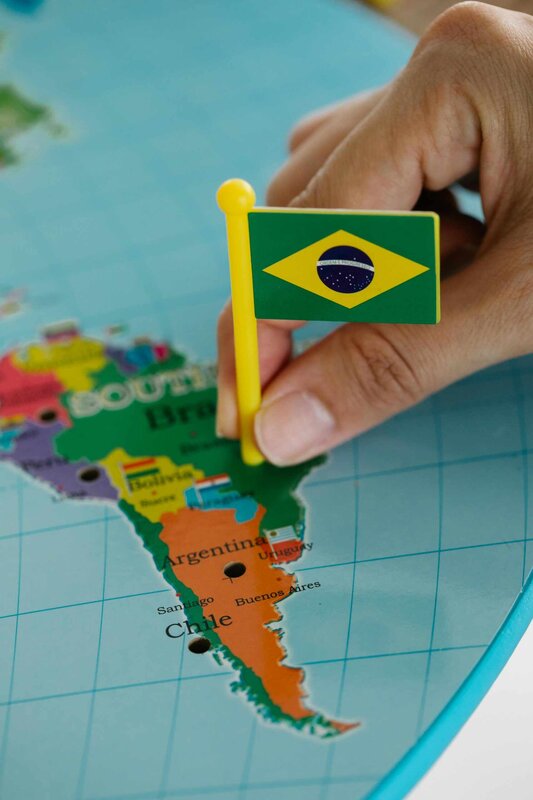So, you’ve probably heard of the global sexual culture research institute, right? Or maybe not, who knows! It’s like this mysterious place where they look into all things related to, well, sex and culture, but in a super academic way. I mean, who wouldn’t want to dive deep into the wild world of human desires and behaviors? Some people might find it kinda weird, but hey, knowledge is power, am I right? The institute explores everything from how societies view intimacy to the weirdest fetishes that you wouldn’t even believe exists. It’s a wild ride, folks. They got researchers who probably spend their days sifting through data, trying to figure out why people do what they do, and honestly, I often wonder if they ever get tired of all the numbers and charts. But, I guess that’s what makes the global sexual culture research institute so intriguing! It’s not just about sex, it’s about how it shapes our lives, our relationships, and maybe even our breakfast choices. So buckle up, cause we’re about to dive into the fascinating world of sexual culture, and trust me, it’s gonna be a bumpy ride!
Discover the Secrets: How the Global Sexual Culture Research Institute is Transforming Our Understanding of Intimacy Worldwide
In recent years, there’s been a growing buzz around the global sexual culture research institute. You know, it’s like the trendy new kid on the block that everyone is talking about but not really sure what they do. Maybe it’s just me, but I feel like sexual culture is a topic that everyone thinks about but nobody talks openly about, right? So, what’s the scoop on this institute? Let’s dive in.
First off, the global sexual culture research institute aims to study how different cultures view sex. It’s kinda fascinating, really — who knew that what happens in the bedroom could be so different from one country to another? Like, in some places, it’s all about freedom and exploration, while in others, it’s like, “Nope! Not happening!” The researchers there are often digging deep into societal norms, values, and even taboos. I mean, who wouldn’t want to know what makes people tick in such an intimate aspect of life?
Here’s a fun fact for ya: did you know that the global sexual culture research institute conducts various surveys and interviews? Yup! They’re out there asking people about their experiences and opinions on sexual matters. And, believe it or not, they even collaborate with local universities and organizations to get a broader understanding. It’s like a giant game of telephone, but with way more interesting content, I guess.
| Country | Attitude Towards Sex | Notable Findings |
|---|---|---|
| USA | Generally open | High acceptance of LGBTQ+ rights |
| Japan | More reserved | Emphasis on privacy and discretion |
| Sweden | Very progressive | Strong focus on sex education |
| India | Culturally complex | Mix of traditional and modern views |
So, what’s really going down at the global sexual culture research institute? They look at everything from sexual orientation to gender identity. It’s like they’re trying to understand the whole kit and caboodle. And then there’s the whole issue of sexual health, which, surprise surprise, is super important. You wouldn’t want to be the only one at the party who forgot to mention that, right?
Now, let’s talk about the findings. Researchers have discovered some pretty wild stuff, like how sexual attitudes can shift over generations. Not really sure why this matters, but it does — think about it! What your grandparents thought about sex is probably way different than what you think, and that’s not just a generational gap; it’s a cultural evolution.
And it’s not all roses and sunshine, either. The global sexual culture research institute also sheds light on some pretty grim realities, like sexual violence and discrimination. It’s like, wow, could we be doing better as a society? The stats are pretty shocking, and it’s clear that there’s still a lot of work to do.
Here’s a list of some pressing issues that the institute tackles:
- Sexual Education: Why is it still a taboo in many societies?
- Consent: What does it really mean, and how can we better educate ourselves?
- LGBTQ+ Rights: Are we making strides or just going in circles?
- Cultural Taboos: What are the unspoken rules, and how do they impact sexual health?
You know, sometimes I wonder if all this research is actually making a difference. Like, are people really changing their views based on what they read? Or is it just more info piling up on the internet? Maybe it’s a bit of both. Either way, the global sexual culture research institute seems to be on a mission to enlighten the masses, one study at a time.
And let’s not forget about the events they host! They’re like workshops and seminars where people can come together and discuss, argue, and learn. Sounds like a blast, right? Imagine the conversations! But also, sometimes, I feel like we’re just skimming the surface.
| Event Type | Purpose | Audience |
|---|---|---|
| Workshops | Educate on sexual health | General public |
| Seminars | Discuss research findings | Academics |
| Community Events | Foster open dialogue | Local communities |
So, it’s clear that the global sexual culture research institute is doing a lot. But in all honesty, how much of it translates to real change? That’s the million-dollar question, isn’t it? I guess we’ll just have to stay tuned and see.
In the meantime, if you’re curious, you might wanna check out their website or social media pages. Not saying you have to, but it could be an eye-opener. Who knows? Maybe you’ll end up learning something that’ll
5 Surprising Findings from the Global Sexual Culture Research Institute that Challenge Traditional Norms
The global sexual culture research institute is like this giant umbrella that kinda covers all the weird, wonderful, and downright confusing aspects of human sexuality. Now, you might be thinking, why do we even need a place like this? I mean, isn’t sex just, well, sex? But hold on, there’s way more to it than just a physical act. Not really sure why this matters, but the way cultures view sex can tell us a lot about society itself.
Let’s break it down. Different cultures have different norms, values, and taboos, which simply means that what’s considered normal in one place might raise eyebrows in another. This is where the global sexual culture research institute comes in — they study these differences, trying to figure out what’s what. It’s like trying to decode a really complicated puzzle that nobody asked to be solved. But someone has to do it, right?
One fascinating aspect of their research includes looking at sexual education around the world. You’d think that teaching about sex would be pretty standard, but nope! In some countries, kids are taught nothing at all, while in others, they get a full-on lecture with diagrams and everything. It’s almost like a game of “how far can we go before someone gets offended?” Here’s a quick table that gives you an idea of how this all breaks down:
| Country | Sexual Education Approach | Age of Introduction |
|---|---|---|
| Netherlands | Comprehensive and open discussion | 4 |
| United States | Varies widely, often abstinence-focused | 12 |
| Sweden | Inclusive and medically accurate | 7 |
| Japan | Limited and often taboo | 15 |
What’s really interesting (and a bit baffling) is how these differences affect attitudes towards sex. For example, in places with open discussions, people tend to have healthier views on relationships and consent. But in areas where it’s all hush-hush, you might find, well, some really messed-up ideas about what’s acceptable. It’s like, “Hey, let’s not talk about it, and see how that works out!” Spoiler alert: it usually doesn’t.
Moreover, the global sexual culture research institute doesn’t just stop at education. They dive into the impacts of technology on sexual relationships. With everything being online these days, dating apps have become a norm. But, maybe it’s just me, but I feel like they’ve changed the way people interact in ways we’re only beginning to grasp. Think about it: swiping left or right on someone’s face? It’s like shopping for a partner, and that’s a kinda weird concept.
And let’s not forget about the role of media. You’ve got movies, music, and social platforms throwing sexual imagery and messages at us 24/7. The institute looks at how all of this affects people’s perceptions of sex. Do we glorify it? Do we vilify it? And how does this change from one culture to another? It’s a wild ride, to say the least.
As they gather more data, they also focus on marginalized communities. This includes LGBTQ+ rights and how different cultures accept (or not accept) these identities. It’s crucial work, especially in places where people still face persecution for just being who they are. Sometimes, you hear these stories, and it just makes you wonder how people can be so cruel. Like, how does society make sense of that?
The global sexual culture research institute also engages in collaborative projects with local researchers and activists to ensure that their work is grounded in real-world experiences. This is important, cause you don’t want some big organization parachuting in and telling people how to live their lives. That’s just rude.
Here’s a quick list of some of the key themes they explore:
- Cultural norms and sexual behavior
- Sexual health and education
- Impact of technology on relationships
- Media representation of sex
- LGBTQ+ rights across cultures
- Taboos and their implications on society
So, what’s the takeaway here? I guess it’s that sex is more than just a physical act; it’s wrapped up in layers of culture, politics, and psychology. The work done by the global sexual culture research institute is vital in understanding these layers. They’re peeling back the onion, and sometimes it makes you cry, but that’s just life.
If you’re curious about their findings or want to get involved, definitely check them out. Who knows? You might discover something that changes the way you see the world, or at least gives you a good story to tell at parties.
The Intersection of Culture and Sexuality: What the Global Sexual Culture Research Institute Reveals About Modern Relationships
Let’s dive into the intriguing world of the global sexual culture research institute. You might be wondering, what the heck is that? Well, I’m not really sure why this matters, but it’s an organization that studies the different ways people express their sexuality across various cultures. Imagine a bunch of researchers sitting around, discussing everything from dating apps to ancient rituals. Sounds kinda wild, right?
Now, when you think of sexual culture, it’s not just about the act itself. Nope, it’s a whole lot more complicated than that. It involves beliefs, values, and behaviors that vary significantly from one culture to another. For instance, in some societies, premarital sex is a big no-no, while in others, it’s as casual as grabbing coffee. So, the global sexual culture research institute tries to wrap their heads around all these differences. But, like, who even decided that studying sexual culture was a good idea? Maybe it’s just me, but I feel like there are easier topics out there.
Let’s break it down a bit. The institute looks at multiple factors that influences sexual culture. Here’s a quick list of some of those factors:
- Traditions: Cultural norms passed down through generations.
- Religion: Different faiths have varying stances on sexual behavior.
- Media: How movies, music, and social networks shape perceptions of sexuality.
- Legal frameworks: Laws that govern sexual behaviors, which can totally vary from country to country.
- Education: The information people receive about sex can differ widely, impacting attitudes and behaviors.
So, here’s a fun table to help visualize this.
| Factor | Description | Example |
|---|---|---|
| Traditions | Norms and customs in a society | Arranged marriages in some cultures |
| Religion | Beliefs influencing sexual behavior | Abstinence teachings in Christianity |
| Media | Influence of films and social platforms | Portrayals of LGBTQ+ relationships |
| Legal frameworks | Laws affecting sexual practices | Age of consent laws |
| Education | Sexual health education availability | Comprehensive vs. abstinence-only education |
You see? There’s a whole ecosystem of influences at play here. And guess what? The global sexual culture research institute collects data from all over the world. They use surveys, interviews, and sometimes, just good ol’ observation. I mean, can you imagine being a researcher and having to observe people in intimate situations? Talk about awkward!
What’s more, they’re also interested in how globalization is changing sexual norms. Like, with the internet, people are exposed to different cultures and ideas about sex that they might never have encountered before. But then again, some folks argue that this exposure can lead to confusion or even conflict. It’s a bit of a double-edged sword, if you ask me.
Now, let’s get a bit more into the nitty-gritty. One fascinating aspect the global sexual culture research institute explores is how sexual orientation is perceived in different cultures. In some places, being LGBTQ+ is widely accepted, while in others, it can be downright dangerous. Here’s another quick listing to highlight this:
- Acceptance: Countries like Canada and the Netherlands, where LGBTQ+ rights are widely recognized.
- Criminalization: Nations like Saudi Arabia, where homosexuality can lead to severe penalties.
- Cultural perspectives: Societies that may tolerate homosexuality but still stigmatize it.
Isn’t it wild how varied the acceptance levels are? But then, you gotta wonder, does this research really change anything? It’s like, does knowing what people think about sex in other countries make a difference in our lives? Maybe it’s just me, but I feel like it’s one of those “interesting but not life-changing” topics.
The institute also presents its findings in a way that’s, well, super academic. They publish papers and reports that can be a bit dense, but they also share insights in more digestible formats. Think podcasts, social media posts, or even workshops. It’s like they’re trying to reach everyone, not just the scholarly types.
Oh, and let’s not forget about the ethical concerns! Researching sexual culture can be a minefield. You gotta consider privacy, consent, and the potential for harm. The global sexual culture research institute takes these issues seriously, making sure they’re not just barging into people’s lives without permission. But honestly, it must be a tough balancing act.
In the end, it seems like the global sexual culture research institute is doing some pretty important work. Even if it feels a bit like a rabbit hole sometimes, their insights can help us understand our own cultures better. And who knows? Maybe one day we’ll all have a more open and accepting
Unpacking Global Sexual Trends: Key Insights from the Global Sexual Culture Research Institute You Can’t Afford to Miss
So, let’s dive into the wild world of the global sexual culture research institute. You know, it’s one of those places that kinda makes you scratch your head and think, “What on earth are they researching?” I mean, sex is everywhere, right? But this institute, it’s like the Sherlock Holmes of sexual culture, peering into the ins and outs of how humans relate to one another in, well, a more intimate way.
I’m not really sure why this matters, but the global sexual culture research institute is all about understanding things that many people might shy away from discussing. They look at how different cultures perceive sex, relationships, and all that jazz. Now, you might be wondering why you should care, but hey, it’s humanity we’re talking about here!
Let’s break down some of the areas this institute dives into, cause honestly, it’s pretty fascinating stuff.
First off, they study the historical context of sexual norms. You know, like how back in the day, people had very different ideas about what’s appropriate or not. In some cultures, polygamy was the norm, while in others, it was all about monogamy. It’s like a big ol’ buffet of sexual practices, and everyone’s eating different dishes.
Here’s a quick table to show some examples of sexual norms around the world:
| Culture | Norms | Notes |
|---|---|---|
| Western Cultures | Generally monogamous | But there’s a rise in polyamory |
| Middle Eastern | Often polygamous | Strong religious influences |
| Indigenous Tribes | Various, often community-based | Strong ties to community and kin |
| East Asian | Generally conservative | But open attitudes are shifting |
Pretty wild, right? It shows how diverse our world can be when it comes to the topic of sex. I mean, maybe it’s just me, but I feel like understanding these differences could help bridge gaps in communication. Like, if you know someone’s cultural background regarding sex, you might be less likely to step on their toes when discussing intimate topics.
Additionally, the global sexual culture research institute also explores the impact of technology on our sexual lives. Ever heard of dating apps? Yeah, those have changed the game completely. Instead of meeting someone at a bar or through mutual friends, we’re swiping left and right like it’s some kind of game. And, like, is that even a real way to find love or just a quick fix for loneliness? Not really sure, but it’s definitely shaking things up.
The institute conducts surveys and studies to see how people are connecting in this digital age. Here’s a breakdown of some of their findings:
- Online dating has risen by 200% in the last decade.
- People who met online are more likely to get married than those who met offline.
- A significant number of users experience ghosting — which, if you ask me, is just plain rude.
But then again, who am I to judge? Maybe ghosting is just part of the modern dating scene now. It’s not like we can all be perfect, right?
Now, let’s talk about sexual education. Oh boy, this is a hot topic. The global sexual culture research institute digs into how different countries teach about sex and relationships. Some places have comprehensive sex ed, while others are kinda like, “Good luck, kids!” It’s a mixed bag of information, with some countries teaching everything from anatomy to consent, while others stick to the “don’t do it” model.
Here’s a quick listing of how sexual education varies:
-
Countries with comprehensive sex ed:
- Netherlands
- Sweden
- Germany
-
Countries with limited or no sex ed:
- United States (in many states)
- Some parts of Asia
- Many African nations
This disparity can lead to all sorts of issues, like teen pregnancies and STIs. I mean, you’d think that with all the information out there, we’d be doing better, right? But nope, not really.
Also, a big focus for the global sexual culture research institute is how sexual rights are viewed across different cultures. It’s kinda mind-boggling how some people still don’t have basic rights when it comes to their bodies and relationships. You’ve got places where LGBTQ+ rights are celebrated, and then others where it’s downright dangerous to be yourself. This kind of stuff can lead to serious consequences, not only for those individuals but for society as a whole.
To sum it all up — or at least attempt to — the global sexual culture research institute is doing some pretty important work. They are digging into the nitty-gritty
How the Global Sexual Culture Research Institute is Shaping Policies and Perceptions: A Deep Dive into Contemporary Sexuality Research
Okay, so let’s dive into the world of the global sexual culture research institute. You might be thinking, “What even is that?” Well, it’s kinda like a think tank but for, ya know, all things related to sex and culture. It’s a place where researchers, scholars, and even some folks who just have a curious mind come together to study how sexual norms and behaviors change around the planet. Not really sure why this matters, but it feels like it does, doesn’t it?
So picture this: you’ve got a bunch of experts from different backgrounds (sociology, psychology, anthropology, and more) all trying to figure out how people express their sexuality in various cultures. I mean, some cultures are all about being open and free, while others are, like, super conservative. It’s kinda wild.
Here’s a little breakdown of some areas they look into:
| Area of Study | Description |
|---|---|
| Sexual Norms | How societies view and regulate sexual behavior. |
| Identity and Orientation | Exploring different sexual orientations and identities. |
| Cultural Practices | Rituals, beliefs, and customs surrounding sex. |
| Policy and Law | How laws impact sexual rights and freedoms. |
Now, you might be wondering, “Why should I care about this?” and honestly, maybe it’s just me, but I think it’s pretty important. The stuff that the global sexual culture research institute digs into can affect everything from public health to human rights. Like, if you understand the sexual culture in a place, you can help create policies that respect individual rights and promote overall well-being. Sounds legit, right?
And let’s not forget about the role of education. In some places, sex ed is like a taboo subject, while in others, it’s all part of the curriculum. You ever thought about how that shapes people’s views on consent, relationships, and even health? It’s a lot to unpack.
So, here’s a list of some practical insights from the research that you might not have considered:
-
Cultural Sensitivity: Understanding sexual norms can help in addressing issues like sexual health and rights. If you don’t understand the local culture, you might just make things worse.
-
Inclusive Policies: Policies need to reflect the diversity of sexual identities. Otherwise, you’re just playing favorites, and that’s not cool.
-
Education Matters: Comprehensive sex education can lead to better health outcomes. You can’t just wing it when it comes to teaching people about their bodies.
-
Intersectionality: Recognizing that race, gender, and economic status all play a role in sexual culture is key. It’s not just black and white, folks.
And there’s this whole debate on how globalization is changing sexual culture. Like, with the internet and social media, people are exposed to different ways of thinking about sex. It’s like a melting pot of ideas, but sometimes it can get messy. Maybe it’s just me, but I feel like we’re seeing a clash of traditional values and modern attitudes, which can be kinda confusing for a lot of folks.
Imagine a young adult in a conservative society, scrolling through their social media and seeing all sorts of lifestyles and choices that are, like, completely different from what they’ve been taught. It can be eye-opening, or it can create a crisis. Who knows?
Here’s another table that shows how globalization impacts different regions:
| Region | Impact of Globalization on Sexual Culture |
|---|---|
| North America | Increased acceptance of LGBTQ+ rights and identities. |
| Middle East | Tension between traditional values and modern views. |
| Asia | Rapid changes, especially in urban areas. |
| Africa | A mix of resistance and adaptation to new ideas. |
So, as the global sexual culture research institute continues its work, they’re uncovering layers of complexity that we often overlook. It’s not just about sex; it’s about identity, freedom, and how we navigate our lives in a world that’s constantly changing. I mean, who wouldn’t wanna know what’s going on in the minds of people around the world regarding something as fundamental as sex?
And sure, there’s a lot of academic jargon and theories that could make your head spin, but at its core, it’s about understanding humanity. So, whether you’re deeply interested in this topic or just casually browsing, this research is essential for fostering empathy and creating a more inclusive world.
I don’t know about you, but I think that’s pretty cool. And hey, if you ever find yourself at a dinner party, you can totally drop this knowledge bomb and watch everyone get all intrigued or awkwardly change the subject. Either way, it’s a win
Conclusion
In conclusion, the Global Sexual Culture Research Institute stands as a pivotal organization dedicated to advancing our understanding of sexual culture worldwide. Through its extensive research initiatives, the Institute explores the complexities of sexual behaviors, norms, and identities across diverse societies. Key findings highlight the impact of cultural, social, and economic factors on sexual expression and health, emphasizing the need for inclusive and informed approaches to sexual education and policy-making. By fostering collaboration among researchers, educators, and policymakers, the Institute aims to challenge stigmas and promote healthier sexual attitudes globally. As we continue to navigate the evolving landscape of human sexuality, it is crucial for individuals and communities to engage with this research and advocate for comprehensive sexual health resources. Together, we can contribute to a more informed, respectful, and inclusive dialogue around sexual culture, ultimately enhancing well-being and understanding across all corners of the globe.














